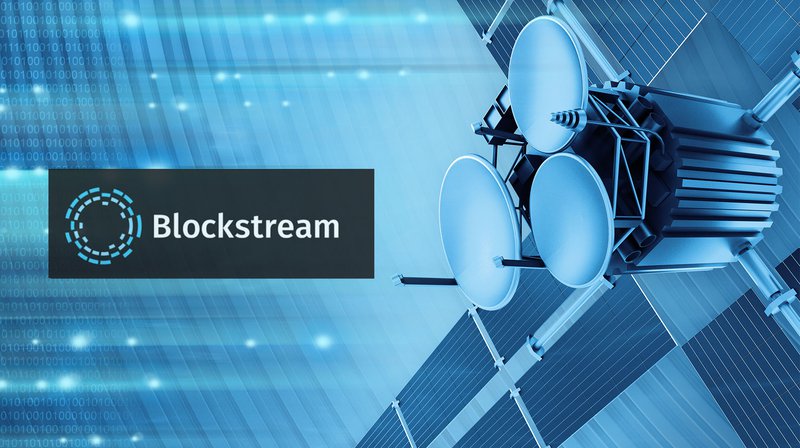The Cuban government has yet to release Daniel Llorente, a dissident arrested for waving an American flag during the nation’s communist May Day parade this year, from a mental health ward his family was told he was confined to following the incident b…
Month: August 2017
Snapchat VP: ‘Expect to See Scripted Shows on Snapchat Before the End of the Year’
Snapchat’s Vice President of Content Nick Bell announced Wednesday that “scripted shows” would appear on their platform “before the end of the year.”
Reports: Globalists in White House Oppose Trump’s Border Wall, Reforms

The “West Wing Democrats” in the White House are eager to sacrifice President Donald Trump’s top campaign promise in exchange for Democratic approval of the tax cuts sought by wealthy donors and business interests, according to an article in Politico. In an August 23 article about Trump’s push to get funding for an extended border wall, Politico described the lack of support for the wall among his business-affiliated aides: Few staff members in the West Wing are as concerned about it [as the President], senior administration officials said. Some in the White House have urged Trump not to focus as much on the wall, try to pass a clean debt-ceiling bill and move to tax reform. “You have barely anyone here saying, ‘Wall, wall, we have to get the wall at all costs,’” one White House official said. Two people who have spoken to Trump said he sees not building the wall as a personal embarrassment — and that he has shown more interest in building the wall than in other issues, like the upcoming budget negotiations. “You don’t want a government shutdown,” the White House official said. “He is told that. He says, ‘I want money for the wall.’” The same
China Vows to Resist U.S. Trade Probe by ‘All Means Necessary’
China has sharpened its rhetoric of the Trump administration’s trade probe.
How the Blockstream Satellite Will Drive Bitcoin Adoption: An Interview with Adam Back and Chris Cook

Last week Bitcoin Magazine covered the announcement of Blockstream Satellite, a new service that broadcasts real-time Bitcoin blockchain data from satellites in space to almost everyone on the planet. Currently Blockstream Satellite covers across two-thirds of the Earth, and service expansions are in the works.
“Today’s launch of Blockstream Satellite gives even more people on the planet the choice to participate in Bitcoin,” said Blockstream co-founder and CEO Adam Back, when the announcement was made. “With more users accessing the Bitcoin blockchain with the free broadcast from Blockstream Satellite, we expect the global reach to drive more adoption and use cases for Bitcoin, while strengthening the overall robustness of the network.”
The idea of streaming the Bitcoin blockchain to the whole planet from satellites in space had previously been proposed by Jeff Garzik, but Blockstream’s implementation introduces some interesting tweaks: It relies on existing commercial satellites already in orbit and leverages open-source software, namely GNU Radio and FIBRE, to reduce costs.
The announcement of the Blockstream Satellite has been received with considerable interest from both the blockchain and space communities, but also with doubts and lingering questions. Bitcoin Magazine reached out to Adam Back and Chris Cook, Head of Satellite at Blockstream, to find out more.
You are essentially using existing commercial satellites as relays. Why is this approach better than building, launching and operating your own satellites, now that cubesats and cheaper cubesat launch systems permit doing so cost effectively?
Chris Cook: While there have been many recent reductions in the cost of cubesats and other low earth orbit (LEO) satellites, it is still a considerably more expensive venture than using existing satellites. As cubesats are not geosynchronous, they are always moving overhead. This means that you need many of them for complete global coverage.
Additionally, many cubesats have a lifetime of only a few months before they fall out of orbit. Either you need to continuously replenish them or you have to boost them into higher orbit, both of which increase costs.
Finally, we have not entirely dismissed the idea of launching our own satellites. However, deploying a global satellite network with existing satellites seemed like a good first step. It allows us to deliver this service to people throughout the world quickly and cost effectively.
What could you do with dedicated custom satellites that you can’t do with the current system?
Chris Cook: A dedicated satellite would potentially enable us to operate a node on a satellite itself rather than [have it be] supported from a ground station.
What if political pressures force your commercial satellite service providers to cancel your contracts?
Adam Back: Because Bitcoin is already widely used and made available via other means in many countries around the world, the threat of the satellite broadcast of Bitcoin being canceled is not likely. The satellite network is providing redundant, low-cost availability for data that is already publicly available and downloadable by anyone over the internet. There are multiple satellites from different providers in the Blockstream Satellite network.
Related to that, does Blockstream Satellite (or a conceivable extension) permit improving on the privacy and anonymity of bitcoin transactions?
Adam Back: Blockstream Satellite allows passive receipt so there is basically no footprint of internet traffic allowing your ISP or monitoring companies analyzing the Bitcoin network to track your node. This may make it attractive even for users with fast home internet to use Blockstream Satellite, where they can then connect and pin their wallet to their home node via Tor.
For geographies where high-speed internet is expensive or not available, they can connect smartphone wallets over WiFi or meshnet to satellite nodes, and broadcast transactions via SMS gateways such as SMSPushTX, by Pavol Rusnak, or bi-directional Ku or L-band internet services (available commercially and unrelated to Blockstream Satellite) which can be expensive, but even the most expensive at $10/MB works out to less than one US penny per transaction, as Bitcoin transactions are small.
So, I have set up my Blockstream Satellite receiving station. I am not connected to the internet. How do I send a bitcoin payment?
Adam Back: See above via SMS, or often people do have 2.5G or 3G data but at expensive data rates. Because Bitcoin transactions are small, the cost of sending a transaction is small, even if receiving the blockchain would be expensive.
For shared equipment, perhaps for a village or business area, a bi-directional satellite internet is also cost-effective, again because of small Bitcoin transactions. L-band BGAN is mobile, and Ku band [Hughes receivers] are fixed satellite dishes.
Your FAQ says that transactions can be sent using other communication channels such as SMS. Do you operate your own SMS relays for bitcoin transactions or do you recommend using external services? If so, which ones?
Adam Back: We do not at this time operate an SMS gateway but Pavol does (see above). We are working with and encouraging Bitcoin enthusiasts and entrepreneurs to build out custom infrastructure configurations and share setup tips online.
What are some of the innovative “killer apps” that you hope Blockstream Satellite could enable?
Adam Back: We see the Blockstream Satellite service as one stepping stone to decentralizing Bitcoin by radically reducing node cost and therefore scaling the ability for people to run nodes.
The Blockstream Satellite provides many advantages for different kinds of network configurations:
-
No internet or expensive internet: Connect a smart phone wallet to a satellite node via WiFi or meshnet;
-
Partition protection: Use a satellite as a cheaper source of blocks, and cross check with other peers. In the event of an internet partition, the satellite will automatically bridge the network outage;
-
Privacy: Use Blockstream Satellite to receive the Bitcoin blockchain with zero or low network footprint. You can verify the satellite data via other peers, and in low bandwidth conditions, with as little data as an 80 byte SMS with the most recent blockheader;
-
Financial sovereignty and security: Blockstream Satellite reduces the cost of running a full node to nearly zero. By running a full node and connecting your smartphone wallet and other wallets to it, you no longer need to trust third parties: As the saying goes, “Don’t Trust. Verify!”
-
Decentralization: One of the most interesting properties of Bitcoin is that it is a permissionless and digital gold-like bearer asset. To ensure Bitcoin stays permissionless, it is important that many people across many countries, [including] individuals and small businesses, run full nodes. By radically reducing the cost of running a full node, we hope many more people will, guaranteeing Bitcoin’s permissionlessness and reinforcing its bearer status.
In terms of innovative applications, we intend to provide a developer API to send application data via the satellite paid in mBTC/KByte so that the developer community, startups and local entrepreneurs can bring new applications to market.
We launched phase 1 satellite coverage across two-thirds of the world’s landmass, and we have plans for worldwide coverage by the end of the year. [As] Blockstream Satellite provides complete Bitcoin coverage globally, it becomes possible to access Bitcoin from a village without high speed internet and without grid power. Or with the right equipment, you could even access Bitcoin on the move from an RV or boat with motorized dishes.
The post How the Blockstream Satellite Will Drive Bitcoin Adoption: An Interview with Adam Back and Chris Cook appeared first on Bitcoin Magazine.
Swedish Anti-Mass Migration Podcasts Taken Down by Soundcloud for ‘Hate Speech’
Several Swedish language podcasts have been removed from the audio website Soundcloud after the company emailed users telling them they had broken their “hate speech” terms of service.
Justice Stephen Breyer: Second Amendment Not About Keeping a Gun by Your Bed
During a re-broadcast interview with PBS’s Charlie Rose, Associate Supreme Court Justice Stephen Breyer said he believes the Second Amendment is a collective right rather than a “right for an individual to keep a gun next to his bed.”
Facebook Deletes Thousands of Accounts Ahead of German National Election
Social media giant Facebook has deleted thousands of German accounts ahead of the German national election next month cracking down on facilitators of “fake news”.
Poland Refuses to Take Any Muslim Migrants After Latest Terror Attacks
The head of the Polish National Security Office has announced that the country will not be taking in Muslim migrants after the latest terror attacks in Spain saying poorly integrated Muslim communities allow terrorism to foster.
